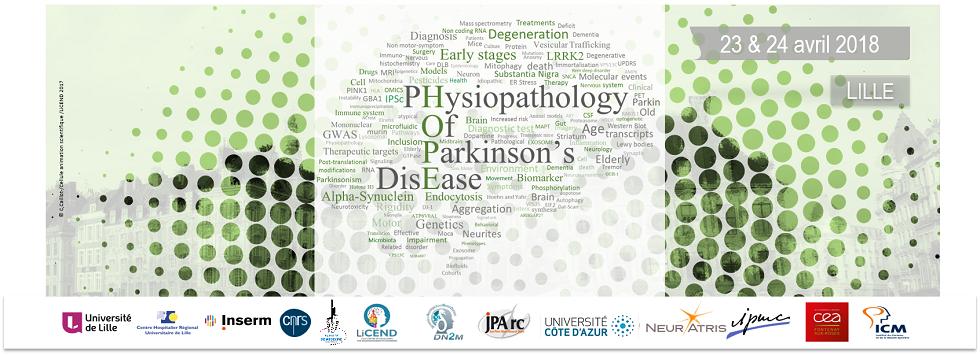Although revealed in the 1950's, epigenetics is still a fast-growing field. Its delineations continuously evolve and get clarified. In particular, « neuroepigenetics », a notion that encompasses epigenetic regulations associated with neuronal processes, appears very promising. Indeed, the challenge to be undertaken in this sub-field is double. On the one hand, it should bring molecular comprehension of specific neuronal processes, some of them falling within the long term regulations, such as learning and memory. On the other hand, it could bring therapeutic options to brain diseases. In this talk, I will present our recent results obtained in Huntington's (HD) and Alzheimer's (AD) diseases to illustrate the new possibilities brought about by epigenomic studies.
First, using genome-wide scale approaches, we have provided new insights into the epigenetic mechanisms underlying repression of striatum-specific identity genes during HD. As the HD striatum is characterized by down-regulation of many genes implicated in biological processes linked to neuronal activity (e.g. neuronal transmission and excitability, synaptic plasticity and learning), we showed that the enhancer mark H3K27 acetylation (H3K27ac) was selectively decreased at super-enhancers, a category of broad enhancers regulating cell type-specific identity genes. Further, dysregulation of enhancer transcription - producing enhancer RNAs (eRNAs) - was extensive in HD mouse striatum. Together, our data suggest that altered super-enhancer activity and eRNA production contribute to the establishment of a “neuronal” transcriptional signature in HD.
Second, we have recently produced the first permeant CBP/p300 acetyltransferases (HAT) activator molecule, CSP-TTK21, that acetylates nuclear chromatin in mice brain and improves spatial memory (patent WO2013160885A1). CBP/p300 HATs play a major role in the transcription of activity-regulated genes required for synaptic plasticity and memory. Using the same type of genome-wide approaches, we showed that H2B acetylation (H2Bac) was significantly reduced in the hippocampus of a mouse model of Tauopathy (THY-Tau22 mice), at a time where mice showed spatial memory deficits. Interestingly, CSP-TTK21 partly re-established H2Bac levels, notably at super-enhancer regulated genes and restored deficient synaptic plasticity (LTD, dendritic spine formation) and long term spatial memory. Transcriptomic studies revealed that CSP-TTK21 treatment also rescued neuronal activity through the induction of immediate early genes (egr-1, cFos, Arc...) in response to learning. Our data suggest that the molecular changes leading to neuronal activation and plasticity might be associated with a partial loss of identity gene expression driven by H2Bac/H3K27ac levels in a population of hippocampal cells, a process that is not properly regulated in tauopathic animals. Thus, we evidence CBP/p300-dependent epigenetic regulations as important therapeutic targets to counteract behavioral deficits associated with AD lesions in mice.
In summary, neuroepigenetic studies give new hopes for a better understanding of neurodegenerative processes and therapeutic options in brain diseases.
Associated references :
Le Gras S, Keime C, Anthony A, Lotz C, De Longprez L, Brouillet E, Cassel JC, Boutillier AL, Merienne K. Altered enhancer transcription underlies Huntington's disease striatal transcriptional signature. Sci Rep. 2017 Feb 22;7:42875.
Achour M, Le Gras S, Keime C, Parmentier F, Lejeune FX, Boutillier AL, Néri C, Davidson I, Merienne K. Neuronal identity genes regulated by super-enhancers are preferentially down-regulated in the striatum of Huntington's disease mice. Hum Mol Genet. 2015 Jun 15;24(12):3481-96.
Chatterjee S, Mizar P, Cassel R, Neidl R, Selvi BR, Mohankrishna DV, Vedamurthy BM, Schneider A, Bousiges O, Mathis C, Cassel JC, Eswaramoorthy M, Kundu TK, Boutillier AL. A novel activator of CBP/p300 acetyltransferases promotes neurogenesis and extends memory duration in adult mice. J Neurosci. 2013 Jun 26;33(26):10698-712.

 PDF version
PDF version
